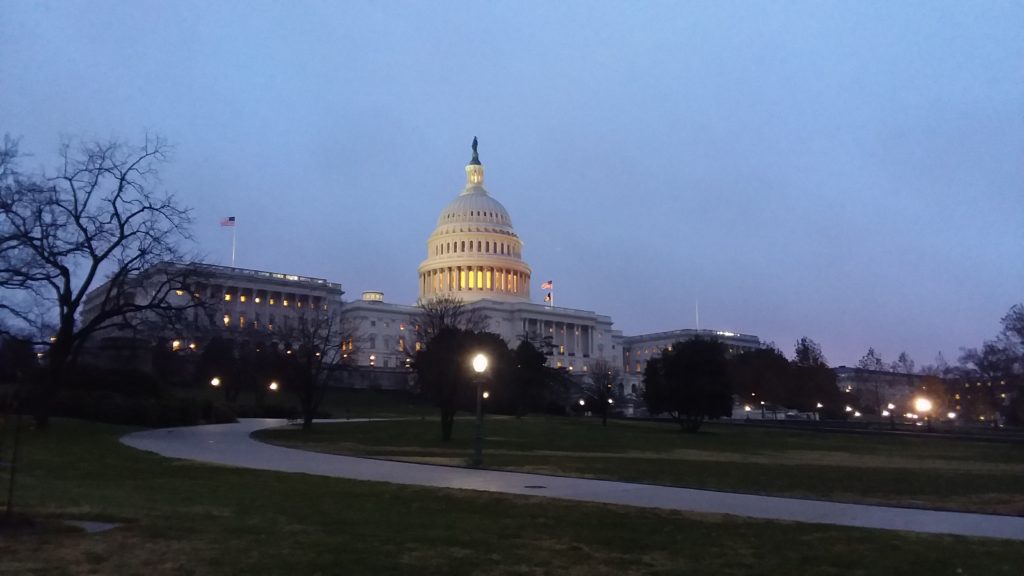In the wake of an outbreak of the novel coronavirus at a Washington nursing home, the Centers for Medicare & Medicaid Services (CMS) will immediately refocus inspections of skilled nursing facilities on compliance with the agency’s infection control policies — and suspend all non-emergency survey work, the agency announced on Wednesday.
“We obviously are looking at a variety of different things when we go in and do an inspection,” CMS administrator Seema Verma said on a conference call with reporters. “We’re going to suspend that and focus everybody on infection control. We are obviously prioritizing those that are impacted by the coronavirus. But we’re starting with a special focus on nursing homes and hospitals, where there’s been some type of a situation, or in areas where we’re seeing community spread. So that’s going to start immediately.”
The agency currently has about 8,200 surveyors for approximately 15,000 nursing homes in the U.S. The areas of priority for inspection will be those where there is concern about the spread of the virus, Verma emphasized, but the agency will also focus on areas with “a previous history,” she said.
Health officials in Washington state reported the first cases of the coronavirus, COVID-19, in a nursing facility over the weekend at a property owned by Life Care Centers of America in Kirkland, Wash.; four people have since died.
Verma provided some updates on that facility’s infection control history on the call, noting that in April of last year, it was cited for several deficiencies, including “severe deficiencies related to infection control,” she noted.
Some of the areas cited included storage of respiratory supplies in a non-sterile location, and a ventilation system in the laundry room that was not functioning. As a result, the facility received a civil monetary penalty (CMP) of $67,000 in the same month. However, the Kirkland facility did come back into compliance, based on the findings of an unannounced inspection in June of 2019, essentially clearing them, Verma said.
The fact that CMS will be focusing inspections on infection control does not mean that other areas of SNF inspection will be bypassed, however.
“I do want to emphasize that we’re not you know, getting rid of all inspections,” Verma said. “If there’s anything related to immediate jeopardy, so patient safety in terms of abuse or neglect, those are things that we would continue to do.”
CMS will work in coordination with state agencies, with the inspections funded by CMS, as well as accrediting organizations, which tend to work with hospitals. These kinds of inspections are already happening, but to contain the spread of the coronavirus, the focus of the agency will be on infection control, Verma said.
“We have a list of how we’re prioritizing which facilities in that order, but we’ll be utilizing all the resources we have at our disposal to carry this out,” she said.
According to a memorandum from CMS, surveys will be conducted with the following levels of priority, starting with the highest:
- All immediate jeopardy complaints and allegations of abuse neglect
- Complaints alleging infection control concerns, including facilities with potential COVID-19 or other respiratory illnesses
- Recertification surveys required by statute (for nursing home, home health, hospice, and ICF/IID facilities)
- Any revisits needed to resolve enforcement actions
- Initial certifications
- Surveys of facilities or hospitals with a history of infection control deficiencies at the level of “immediate jeopardy” in the last three years
- Surveys of facilities, hospitals and/or dialysis centers with a history of infection control deficiencies at levels lower than “immediate jeopardy.”
That memo also detailed protocols for the inspection process in suspected or diagnosed COVID-19 cases, including working with CMS regional offices, coordinating with the Center for Disease Control and Prevention (CDC) and other relevant agencies, and guidance on usage of personal protective equipment by inspectors.
CMS has given facilities guidance on precautions they need to take when transferring patients who might be infected, Verma said, but it was not clear whether a SNF patient who was potentially infected could be treated on-site.
The agency did provide advice, in two different memos, related to screening visitors and when providers should take precautionary measures, as well as the process for transferring patients between nursing homes and hospitals for suspected or diagnosed COVID-19 cases.
Infection control RoPs under the microscope
On Tuesday, the agency came under scrutiny for a proposal to scale back some of the mandates related to infection control in a deep dive by NBC News.
In July 2019, CMS issued some proposed changes to the Requirements of Participation (RoPs), specifically delaying some parts of the third and final phase of the major compliance updates.
One portion of the RoPs that CMS proposed overhauling at the time was related to the designation and training of the infection preventionist (IP). Though the need for that position was unchanged, CMS’s proposal stipulated that the position no longer had to work “part-time” at a facility or have frequent contact with the facility’s infection prevention and control program staff, Dee McCarthy, chief clinical officer at the Glendale, Wis.-based North Shore Healthcare, told SNN at the time.
The rule proposed by CMS in July would require that facilities “ensure that the IP has sufficient time at the facility to meet the objectives of its infection prevention and control program.” CMS is still in the process of rulemaking; comments on it closed in September 2019, and Verma noted that it has not yet been finalized when asked whether the agency would move forward with that proposed change.
Lyndee Yamshon contributed reporting.



